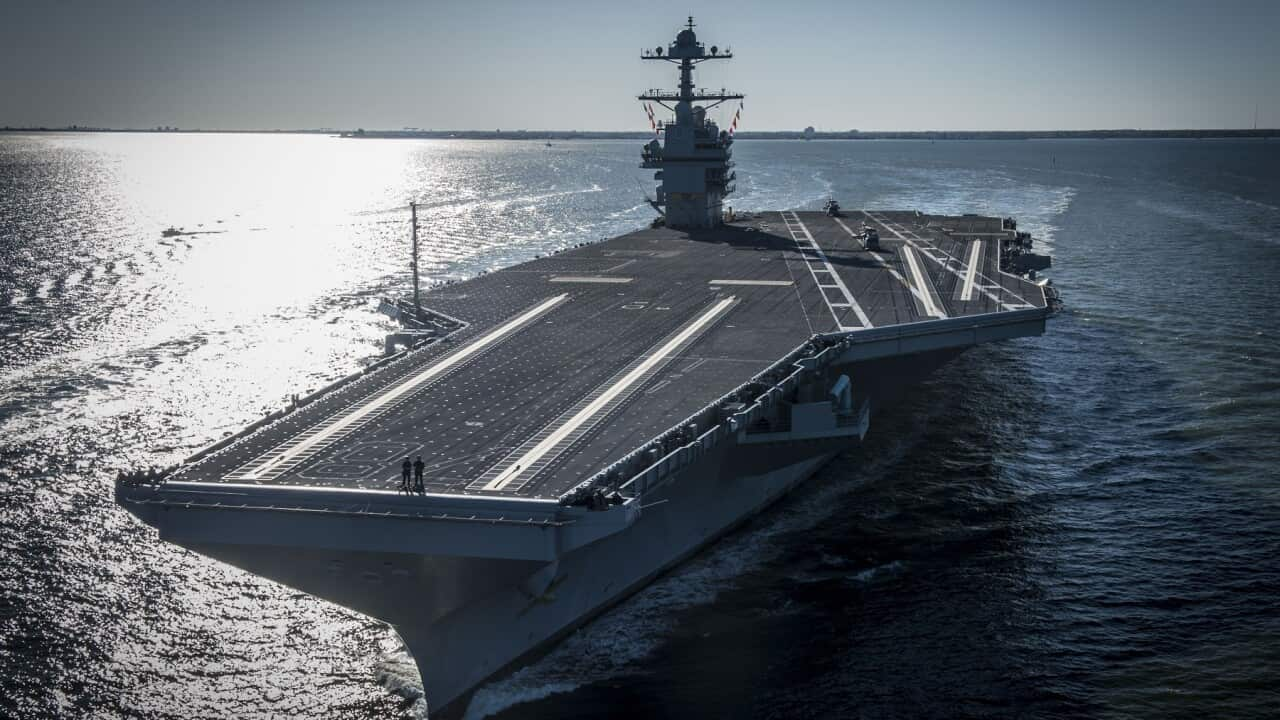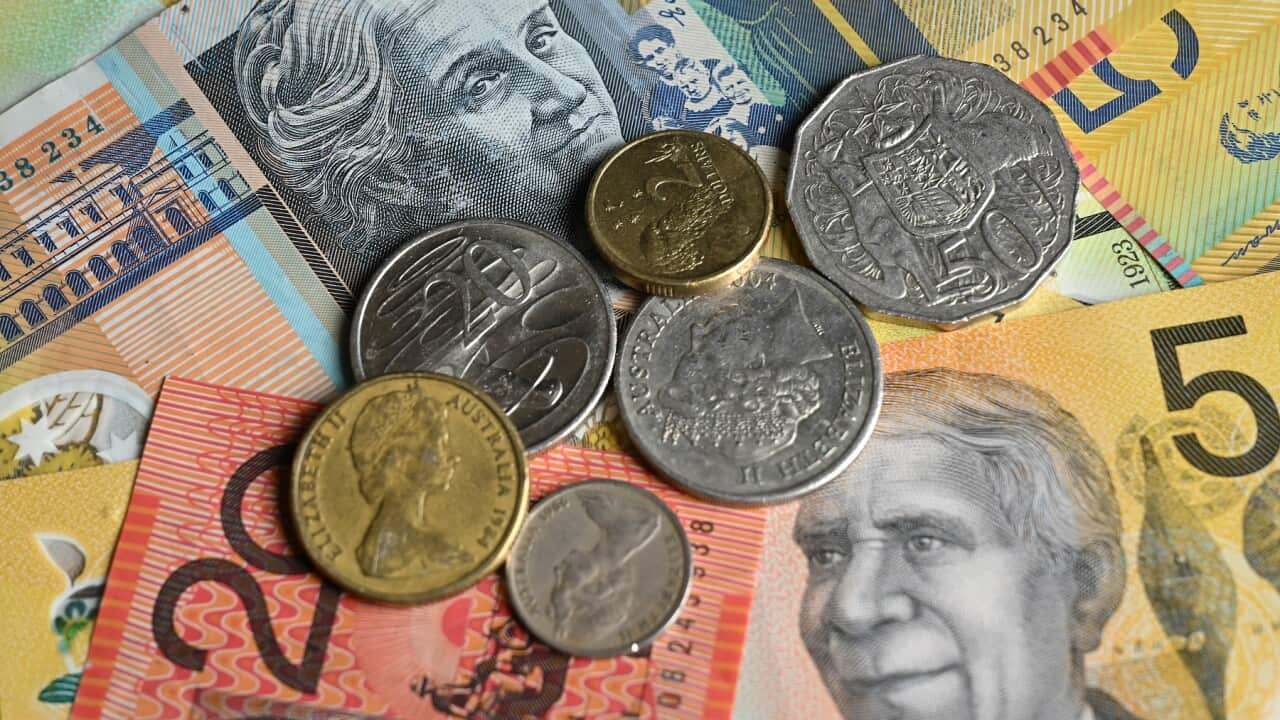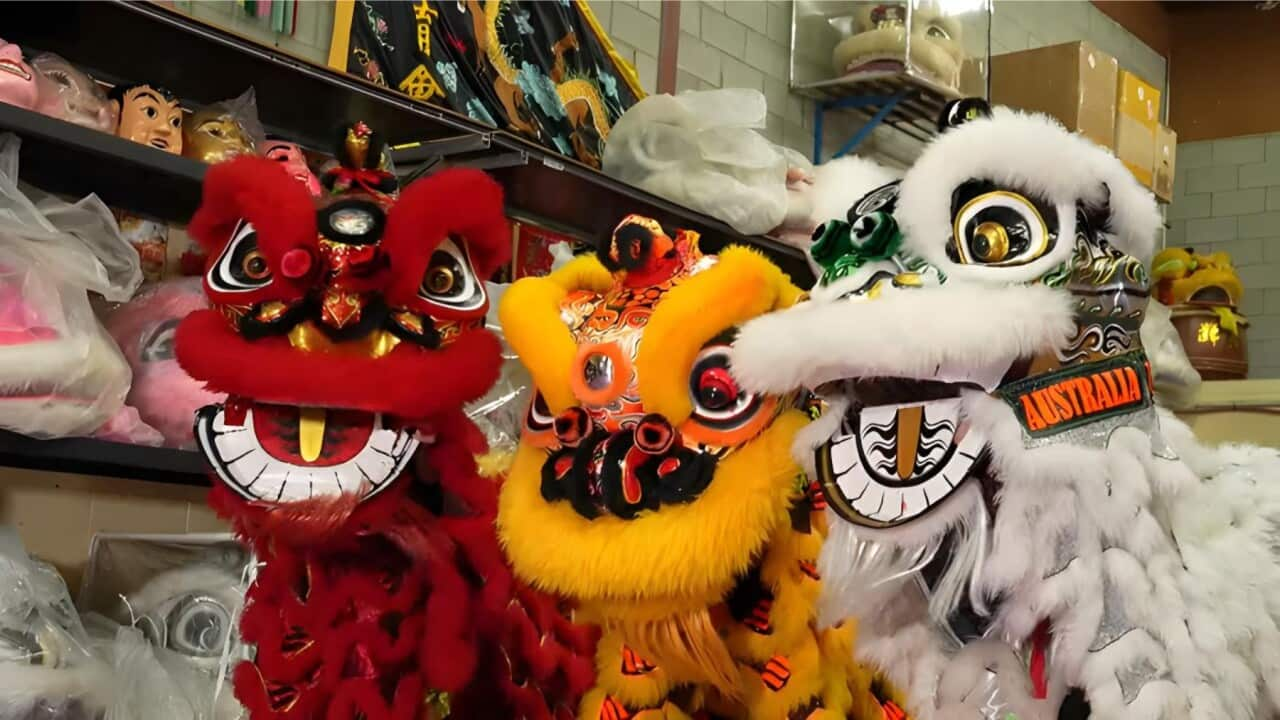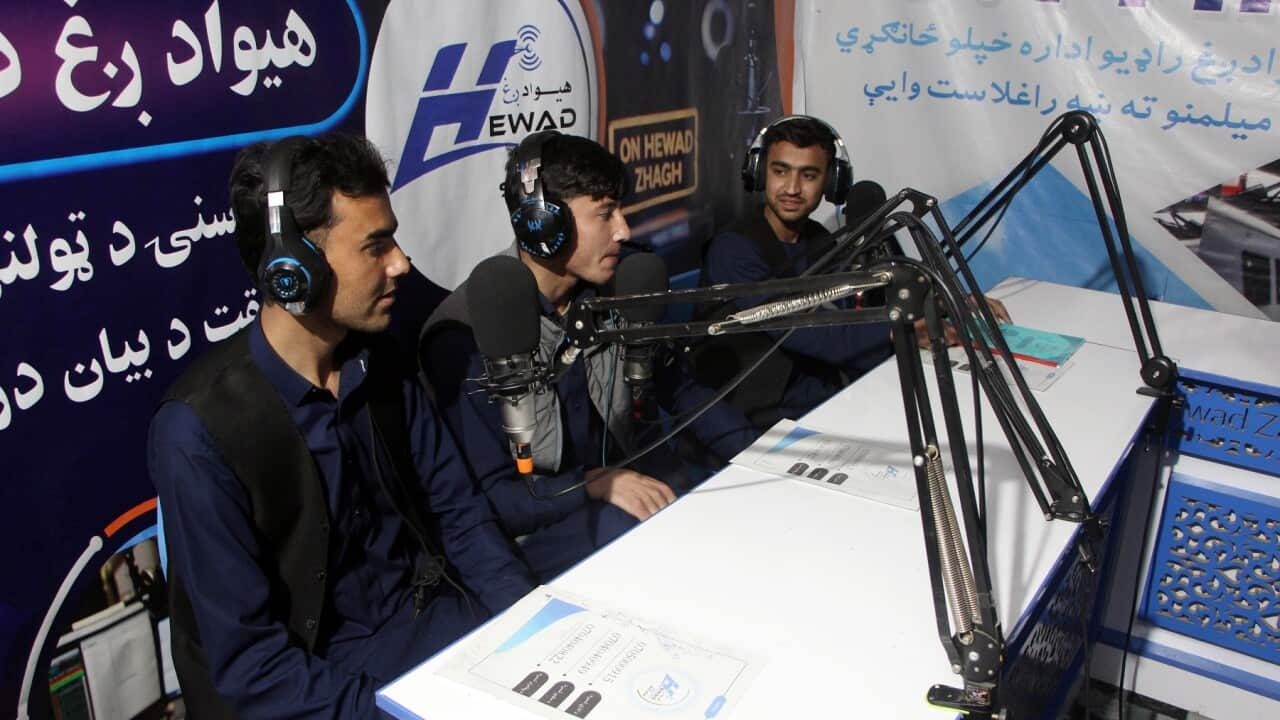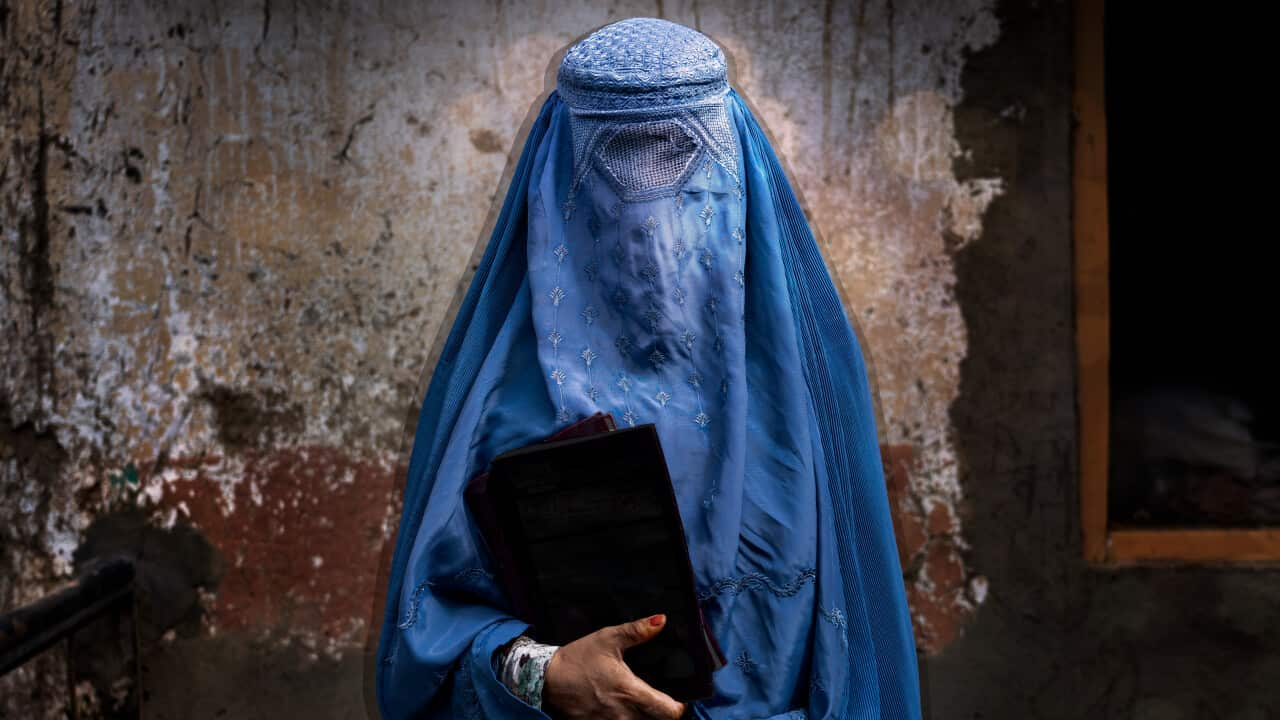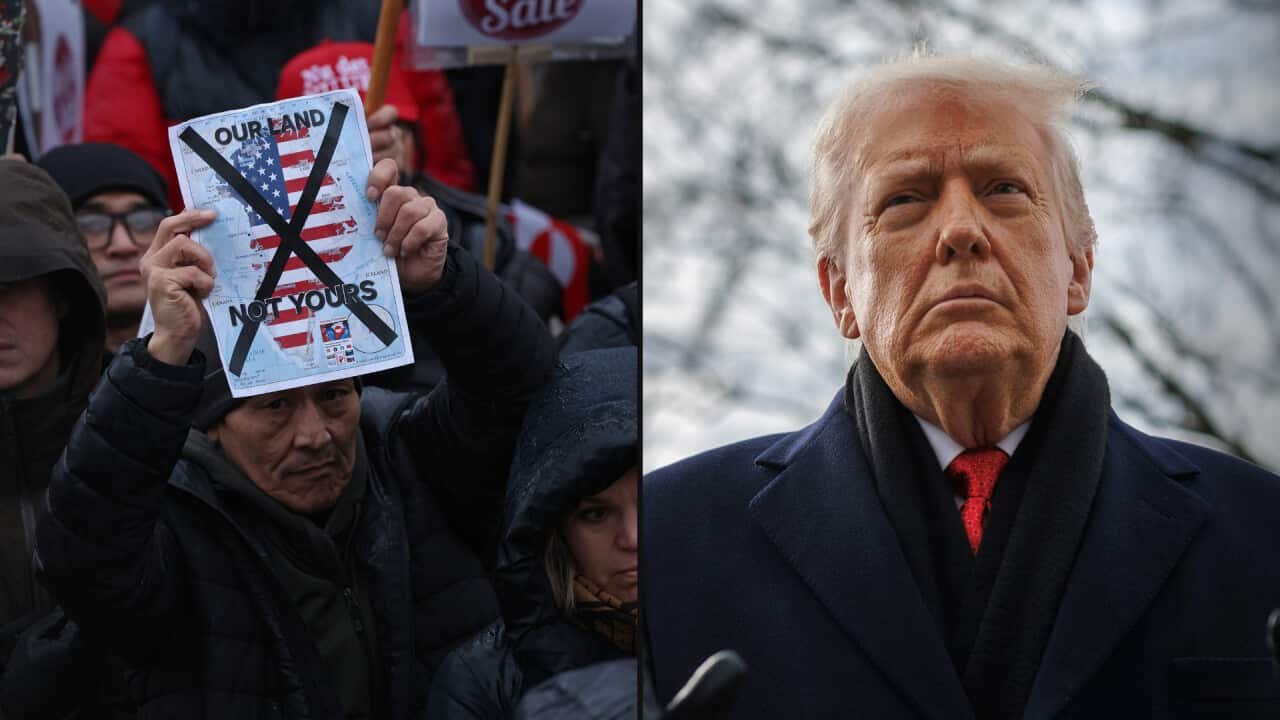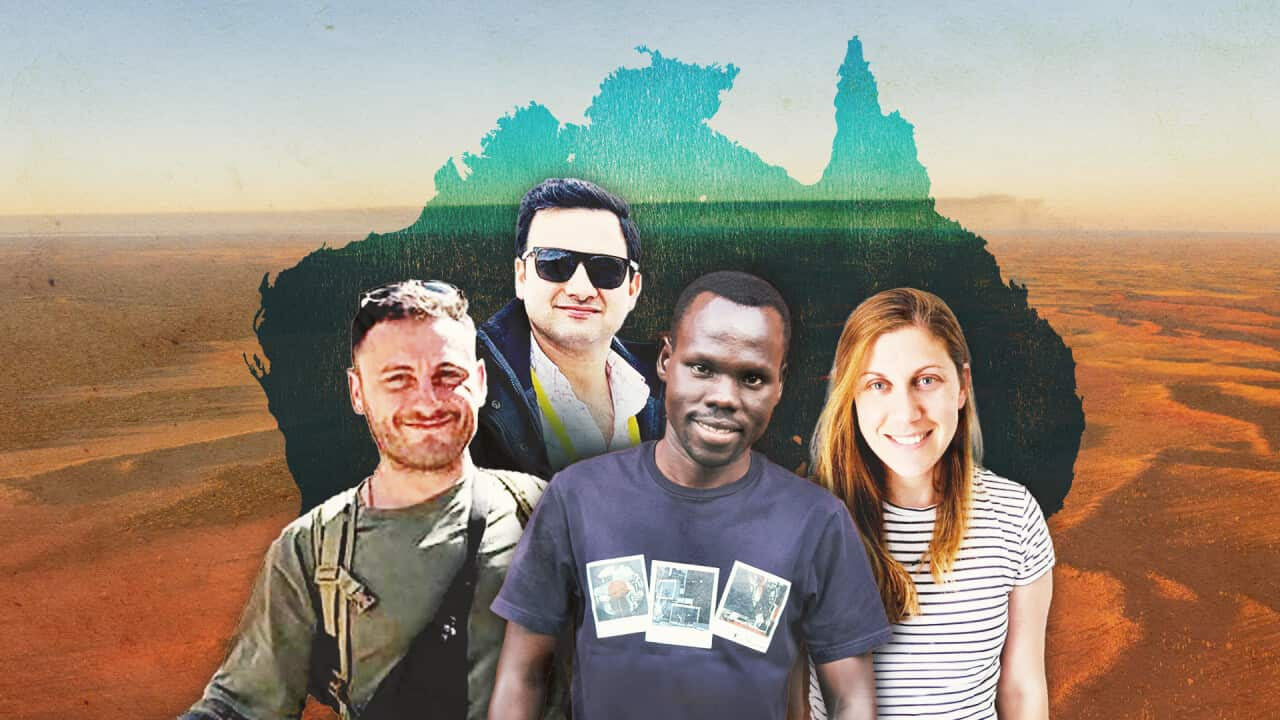Listen to Australian and world news, and follow trending topics with SBS News Podcasts.
TRANSCRIPT:
"Thank you guys, thank you, thank you."
US secretary of state, Marco Rubio, is posing for photographs with Argentine Foreign Minister Pablo Quirno in Washington DC.
A short time later, he greets Brazilian Foreign Minister Mauro Viera.
Within hours of these meetings, the White House had announced trade deals with Argentina, Guatemala, Ecuador and El Salvador.
At around the same time, a 100 thousand tonne United States warship was approaching Venezuela, with the world's largest aircraft carrier, the USS Gerald R Ford, now stationed in the Caribbean Sea.
US Defence Secretary Pete Hegseth has taken to social media platform, X, to signal it's part of an escalation in the US campaign against alleged drug trafficking vessels in the region.
"Today, I’m announcing Operation Southern Spear. Led by Joint Task Force Southern Spear and southcom, this mission defends our homeland, removes narco-terrorists from our hemisphere, and secures our homeland from the drugs that are killing our people."
15,000 American military personnel are now in the Caribbean in the US forces' biggest show in the region in thirty years.
Venezuela's Minister of Defense, Padrino Lopez, says the Venezuelan army is ready to respond.
“I insist, there has been no pause, nor will there be a pause. We will continue in our determination to prepare ourselves to defend our homeland in all areas, whatever the threat, its intensity, its proportion, etc. To that end, we are considering various scenarios.”
US President Donald Trump wants his Venezuelan counterpart to leave office, blaming him for drugs and illegal immigrants entering US borders.
To that end, the US has spent months launching deadly strikes on Venezuelan boats it has alleged - without providing evidence - are trafficking drugs.
The strikes have killed dozens of people, and the Pentagon has reported another four people killed in its latest strike on Monday.
President Nicolas Maduro says the White House is sharing a story that is just not true.
"Now imperialism is inventing an even more bizarre narrative. Since they cannot say that Maduro has weapons of mass destruction, since they cannot say that we have hidden biological or chemical weapons, they invent a bizarre narrative. So false that it collapses and no one believes it, starting with the people of the United States."
The US President's campaign against alleged Venezuelan drug trafficking has been a feature of his second term in office.
Su Xiaohui is the Deputy Director of the Department for American Studies at the China Institute of International Studies in Beijing.
She says the US could face consequences for its actions that go beyond its relationships in Latin America and the Caribbean.
"Once the US takes action, regardless of its form, it could lead to a sharp escalation of the situation and potentially spiral out of control. This may result in significant backlash against the US itself. The effects on regional security will not only expose Latin America and the Caribbean to further security risks but could also have deeper negative implications for the future development of the region."
Rifts are already being felt further afield, including with some of the US staunchest military allies.
This week, Britain signalled its concerns over the legality of the US actions, making the rare move of suspending intelligence with the nation about suspected drug trafficking vessels in the Caribbean.
Colombia has done the same - with both concerned the information would be used by American forces to launch lethal military strikes.
So has the French foreign minister, who says US military operations in the Caribbean violate international law.
Secretary of State Marco Rubio has pushed back against these criticisms, saying Europeans don't get to dictate how Washington defends its national security - and allies like Britain have not raised any concerns with him directly.
"I'm not going to go into great detail and to say that, it's a false story, it's a fake story. And what's happening now is people with a business card that has a government email on it have become sources because they don't know they're not even in the know. So they either have an agenda or they want to make themselves important. And it's been a plague of story after story that's either inaccurate or misleading, and that falls in the category of both, that story does."
But dissent has come from inside the US, too.
This week, Democrat Illinois Governor J-B Pritzker raised fears Donald Trump could attack Venezuela to distract from bad press at home - namely, the release of a tranche of files from pedophile financier Jeffrey Epstein.
“He's gonna do everything in his power to distract. And what does that mean? I mean, he might take us to war with Venezuela just to get a distraction in the news and take it out of the headlines.”
Still, the campaign does have support.
Panama signed a security pact with Washington DC in April, allowing US troops to conduct military exercises on its soil - and at a police base on the Caribbean coast.
This week, Panama authorities intercepted a vessel in the Pacific carrying 13 and a half tons of drugs that Chief Drug Prosecutor Julio Villareal says may have been bound for the US.
"This is a historic seizure, over 11,000 kilograms of presumed cocaine. We are still awaiting results from the Forensic Laboratory of the Institute of Legal Medicine. This seizure obviously deals a heavy blow to organized crime, understanding that this vessel intended to navigate the Pacific in areas or towards North America."
